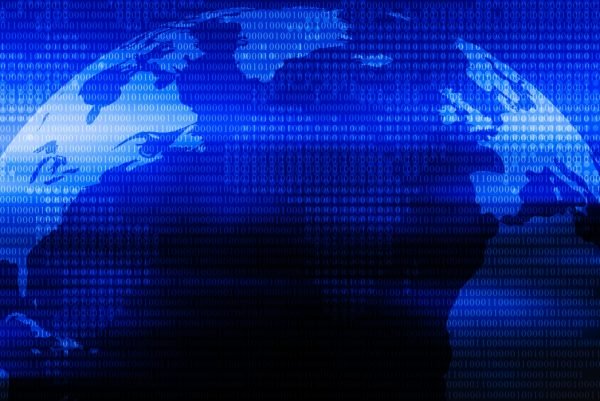
When the internet was first commercialized, it heralded a brave new boundaryless world. Commercial transactions were no longer to be constrained by artificial lines drawn on maps. Decisions would be delegated down to the lowest level of transactions. Email, and later, internet-protocol telephony and video conversations, would eliminate the stranglehold on interpersonal communications traditionally held by telecommunications firms and traditional mail. Some even foresaw the tool enabling the subjugation of all forms of international rivalry to an era of global peace and prosperity — a Pax Internetica, so to speak.

For a while, it seemed that the promised new world was not just an ephemeral dream. Amazon, Alibaba, and a host of other firms really could sell the same items to customers in countries from Afghanistan to Zimbabwe. Facebook offered the same functionality to users in Fiji and Finland, while a video uploaded in Slovakia could be viewed in Singapore and Mexico. Data could apparently migrate seamlessly around the planet, from where it was captured to where it was used, seemingly without limits. One worldwide web, owned and controlled by no one, albeit relying on the collaboration and cooperation of billions, would rule.
Realpolitik
Unfortunately, the internet hasn’t proven to be immune from geographically-bound realpolitik. Instead, as the economic and political value of interactions taking place over the internet have increased, so too have the battles for control of the infrastructure, data, and interactions (i.e. applications) themselves.
In the absence of a
single central governing polity — an empire, perhaps — or arguably, in the face
of challenges to the de facto emperor (i.e. the United States, which exercised
effective hegemony as the internet was cultivated and commercialized), we are
currently witnessing the fragmenting of the internet. And extending the
crumbling empire allegory, the battles for control have begun from within.
Drawing battle lines
Physical
infrastructures have proven to be among the easiest elements over which
governments can exercise control. This is manifested in the debate about
deployment of Huawei kit in 5G networks. Governments have the power to compel
firms located within their territories to act in specific ways. Thus, the
Chinese government can instruct Huawei to design infrastructure in a manner
that serves China’s interests alone. And the American and Australian
governments can instruct their telco operators not to deploy Huawei products
because that serves their national interests. Both internet equipment design
and deployment decisions are overridden by overarching national political
concerns, regardless of the effects on the value of the system as a whole.
Infrastructure neutrality has been subordinated to partisan provisions.
Likewise, battle lines
for control of data have been drawn between national and international
allegiances. While national governments cannot easily direct firms that are not
their legal citizens, they can mandate elements of transactions that affect
their citizens. Hence, the European Union’s General Data Protection Regulation
(GDPR), “know your customer” rules, and similar obligations in other countries
have resulted in firms facing different obligations depending on the
geographical location of users to whom data collected pertains.
Internet fragmentation is further facilitated by countries placing other location-specific obligations on applications providers that do not apply in other places. In response to terrorist attacks, the Australian and Singaporean governments have passed laws making it a criminal offense for individuals or hosting services to share “abhorrent violent material” online in their territories. The New Zealand government, facing falling tax revenues as consumers substitute local for overseas online purchasing, will require all firms transacting more than $60,000 of online business with New Zealanders annually to register with its Inland Revenue Department and collect and pay a 15 percent goods and services tax on these purchases, beginning in December 2019. Foreign firms such as Amazon, Alibaba, and eBay are now tax collectors for the New Zealand government, just like local firms Fishpond and Sky Television. Internet users of a specific application can no longer expect to be treated the same as all other international users, as their governments dictate that they should be treated differently. Application providers can’t aspire to provide a common worldwide experience based on the laws of the land in which they are domiciled or registered. All must now customize their offerings to the laws of the location of their customers.
Back to the future?
While questions remain
about how violations of these local rules will be detected, prosecuted, and
remedied, the implications are clear. What was once a global internet is
rapidly being fragmented. National
interests are asserting local control over internet activities just as surely
as they did in the “good old days” when exercising hegemony over postal
deliveries and telephone calls. In seeking to free individuals from these
constraints, the internet has, ironically, led first away from, and then back
to, a system constrained by local geographical interests and political controls.
As the world moves
into a new political era dominated by local populist policies, it bears
remembering that a shot fired in one of the Balkan states precipitated the
collapse of international agreements and World War I. It begs the question of
whether the internet will become (or is even already) the front-line of the
next great conflict between nation states.
The post Fragmenting — and politicizing — the internet appeared first on American Enterprise Institute – AEI.
